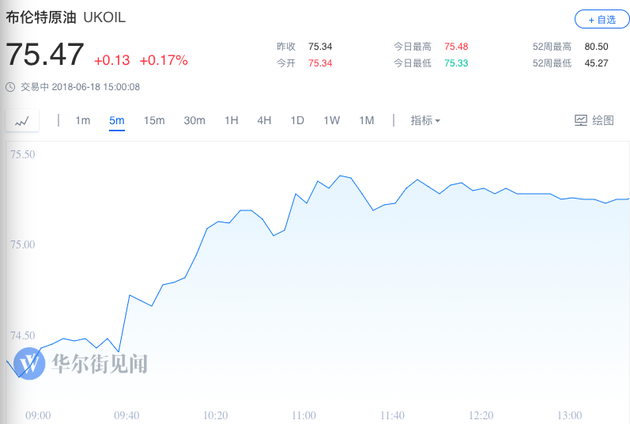Multi Purpose Mats,Non-Woolen Mats,Waterproof Multi Purpose Mats,Custom Multi Purpose Mats Suzhou Surface Protective New Material Technology Co.,Ltd , https://www.surfaceprotective.com On Friday and Saturday, OPEC and non-OPEC oil producers will meet in Vienna, and Saudi Arabia and Russia are working hard to boost production. Driven by the news and the Sino-US trade war, international oil prices fell last week. Last week, WTI crude oil fell about 1%, and oil oil fell about 4%. Russian and Saudi power producers increased production last week, Russian oil minister Novak said that OPEC and the organization's oil-producing countries could gradually increase production from July 1st, and one option considered to return to the market with a supply of up to 1.5 million barrels per day. . Saudi oil captain Falih’s statement is relatively vague, just predicting the success of the Vienna conference on June 22. “I think there will be an agreement to satisfy the most important market. This agreement is reasonable and moderate, not strange.†. Earlier in the week, people familiar with the matter said that Saudi Arabia did provide a lot of options for gradually increasing production, but the expected range is between 500,000 barrels per day and 1 million barrels per day. It is more likely to support an increase of 600,000 to 700,000 barrels. /day. This is actually inconsistent with Russia's more "radical" increase in production targets. We must know that last weekend's internal news said that Russia would have proposed to increase production by 1.8 million barrels per day. Nowak also admitted that the specific scale and timing of the increase will remain to be discussed next week. However, the idea of ​​increasing production in Saudi Arabia and Russia has not been approved by OPEC and other oil-producing countries. Iran and other countries have clearly expressed their opposition to increasing production. On Thursday, US President Trump once again sent microblogging to bombard oil prices. He said that "oil prices are too high. OPEC is coming again. This is not good!" Wall Street has previously analyzed that Saudi Arabia and Russia have increased production and the United States. The pressure is related.
On Friday and Saturday, OPEC and non-OPEC oil producers will meet in Vienna, and Saudi Arabia and Russia are working hard to boost production. Driven by the news and the Sino-US trade war, international oil prices fell last week. Last week, WTI crude oil fell about 1%, and oil oil fell about 4%. Russian and Saudi power producers increased production last week, Russian oil minister Novak said that OPEC and the organization's oil-producing countries could gradually increase production from July 1st, and one option considered to return to the market with a supply of up to 1.5 million barrels per day. . Saudi oil captain Falih’s statement is relatively vague, just predicting the success of the Vienna conference on June 22. “I think there will be an agreement to satisfy the most important market. This agreement is reasonable and moderate, not strange.†. Earlier in the week, people familiar with the matter said that Saudi Arabia did provide a lot of options for gradually increasing production, but the expected range is between 500,000 barrels per day and 1 million barrels per day. It is more likely to support an increase of 600,000 to 700,000 barrels. /day. This is actually inconsistent with Russia's more "radical" increase in production targets. We must know that last weekend's internal news said that Russia would have proposed to increase production by 1.8 million barrels per day. Nowak also admitted that the specific scale and timing of the increase will remain to be discussed next week. However, the idea of ​​increasing production in Saudi Arabia and Russia has not been approved by OPEC and other oil-producing countries. Iran and other countries have clearly expressed their opposition to increasing production. On Thursday, US President Trump once again sent microblogging to bombard oil prices. He said that "oil prices are too high. OPEC is coming again. This is not good!" Wall Street has previously analyzed that Saudi Arabia and Russia have increased production and the United States. The pressure is related.
OPEC members are discussing increasing production by 300,000-600,000 barrels per day in an effort to seek compromise to overcome Iran's disagreement. This number is lower than the previous market's expectations of 5-10 million barrels. According to a few days of the formal meeting on the weekend, OPEC has begun to prepare intensively. Bloomberg quoted people familiar with the matter on Monday, saying that OPEC members are discussing increasing production by 300,000-600,000 barrels per day in an effort to seek compromise to overcome Iran's disagreement. This increase in production is lower than previously expected by the market. According to the previous tone of Saudi Arabia and Russia, the current market is generally expected to increase production range of 5 to 1 million barrels, and Russia even called for a reduction of 1.5 million barrels per day. After the news was released, the international oil price erased the gains earlier today. The oil was about 50 cents higher in short-term, and WTI was also nearly 40 cents higher. At the close, WTI crude oil futures closed up 79 cents, or 1.21%, to $65.85 a barrel. Brent crude oil futures closed up $1.90, or 2.59%, to $75.34.